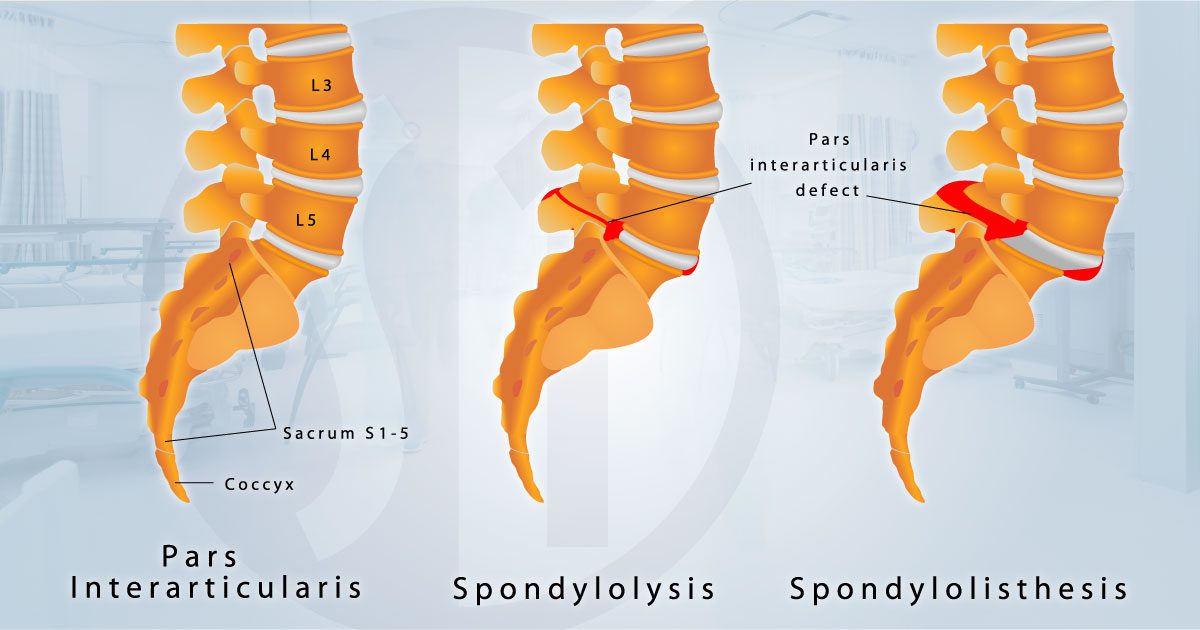Spondylolisthesis
Spinal Damage Leading to Vertebral Displacement
Spondylolisthesis is a condition in which damage to the bones or joints in the spine causes a vertebra to slip forward. This, in turn, may cause a nerve root to be pinched or irritated, radiating pain to the legs and feet. Causes of spondylolisthesis vary based on age, lifestyle and heredity. Children may suffer from the condition as a result of injury (especially in sports like football, gymnastics, wrestling, weightlifting and track and field), and rapid growth during adolescence may also be a contributing factor. If this condition is present in the family medical history, any age is at risk.
There are two types of spondylolisthesis:
- Isthmic spondylolisthesis occurs when vertebral bones fracture, allowing a vertebra to slip forward. This condition typically occurs in the lower regions of the lumbar spine.
- Degenerative spondylolisthesis occurs when the facet joints weaken, often due to osteoarthritis, allowing a vertebra to slip forward. Degenerative spondylolisthesis is most common in people over the age of 65 and is three times more likely to affect a woman than a man.
Your doctor will ask questions about your activity, symptoms, and medical history to diagnose this condition. The doctor will also order diagnostic imaging to confirm the diagnosis. SpineOne may use anti-inflammatory medicine such as oral medications and therapeutic injections to reduce the inflammation causing pain. This pain intervention technique is paired with a physical therapy program to help promote mobility in the spine and increase the strength and flexibility of the surrounding muscles. Patients undergoing this treatment regimen have reported a significant reduction in their pain levels and improvement in their quality of life.
Spondylolisthesis Symptoms
Spondylolisthesis Treatment
This condition occurs when a lumbar vertebra slips out of place. It slides forward, distorting the shape of your spine. This may compress the nerves in the spinal canal. The nerves that exit the foramen (open spaces on the sides of your vertebrae) may also be compressed. These compressed nerves can cause pain and other problems.
